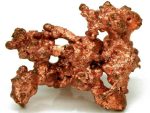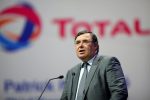Windhoek’s Central Business District (CBD), described as the “very heart” of the capital, is set for a major transformation under a new revitalization strategy outlined by City of Windhoek Mayor, Councillor Ndeshihafela Larandja. During a high-stakes engagement with CBD property owners and stakeholders on Tuesday, the Mayor emphasized the economic imperative of addressing urban decay, declining foot traffic, and competition from suburban malls to secure the district’s future as Namibia’s premier commercial and cultural hub.
The Mayor’s address, delivered from the city centre, framed the CBD’s revitalization as critical to bolstering investor confidence, tourism, job creation, and overall quality of life. “A thriving CBD directly influences investor confidence, tourism attraction, and the socio-economic health of our city,” she stated, aligning the effort with the City’s broader strategic vision, to be a Sustainable and Caring City by 2027. The plan prioritizes public-private partnerships, mixed-use development, and infrastructure upgrades to foster a “lively, safe, and culturally rich environment.”
Key initiatives include the establishment of the Windhoek Tourism Mile, a project aimed at enhancing the district’s appeal to visitors, alongside upgrades to street lighting and public spaces such as Zoo Park. The latter is envisioned as a communal hub to drive social well-being and cultural exchange. These efforts build on recent private-sector investments in eco-friendly landmarks, including the Capricorn Group’s 13-story building and Nedbank’s internationally acclaimed green headquarters. Mayor Larandja underscored that such developments, coupled with improved safety and cleanliness, are pivotal to attracting businesses, residents, and tourists.
However, the Mayor acknowledged setbacks, notably the government’s rejection of the proposed Special Rating Area Regulation (SRAR), a model akin to global Business Improvement Districts (BIDs). These districts, successfully implemented in cities like Toronto and Cape Town, enable property owners to collectively fund localized improvements. Despite years of preparatory work by an interim committee—including major stakeholders like Broll Namibia and Namdeb—the rejection has delayed a tool proven to drive urban renewal elsewhere.
Undeterred, the City is pursuing alternative strategies. “We remain committed to a comprehensive approach,” the Mayor affirmed, urging property owners to collaborate on pressing issues such as safety, lighting, and beautification. She emphasized that stakeholder input from the engagement would be compiled and presented to the government to advocate for policy revisions. “Constructive dialogue and collective advocacy can influence decisions that support our CBD’s revival,” she added.
The economic stakes are high. Windhoek’s CBD faces mounting challenges, including office decentralization and competition from sprawling suburban malls, which have siphoned off commerce and foot traffic. A revitalized CBD, the Mayor argued, is not only vital for local businesses but also for Namibia’s national economy, given the capital’s role as the administrative and cultural nucleus. “A thriving, aesthetically pleasing CBD sends a powerful message about our city’s potential,” she said, linking urban vibrancy to broader economic resilience.
Critically, the plan hinges on stakeholder buy-in. The Mayor called on property owners to maintain their buildings, collaborate with the City, and advocate for supportive policies. “Your role is critical in this revival,” she stressed, framing the effort as a collective opportunity to reshape Windhoek into a “beacon of national pride, prosperity, and community spirit.”
The City’s departments—spanning urban planning, infrastructure, and economic development—have pledged closer collaboration with stakeholders to address systemic issues. This includes leveraging mixed-use developments that integrate residential, commercial, and recreational spaces, a model designed to inject round-the-clock vitality into the CBD.
While the path forward is complex, the Mayor’s address struck a tone of cautious optimism. By aligning municipal strategy with private-sector innovation and global best practices, Windhoek aims to reverse urban decline and position its CBD as a dynamic engine of economic growth. For Namibia, the success of this vision carries implications beyond the capital: a revitalized Windhoek could bolster national investor appeal, create jobs, and reinforce the city’s status as a gateway for tourism and commerce.
As stakeholders digest the plan, the focus now shifts to implementation. With the 2027 deadline looming, the City’s ability to translate vision into action—and to secure government and private-sector support—will determine whether Windhoek’s heart can beat stronger than ever.










